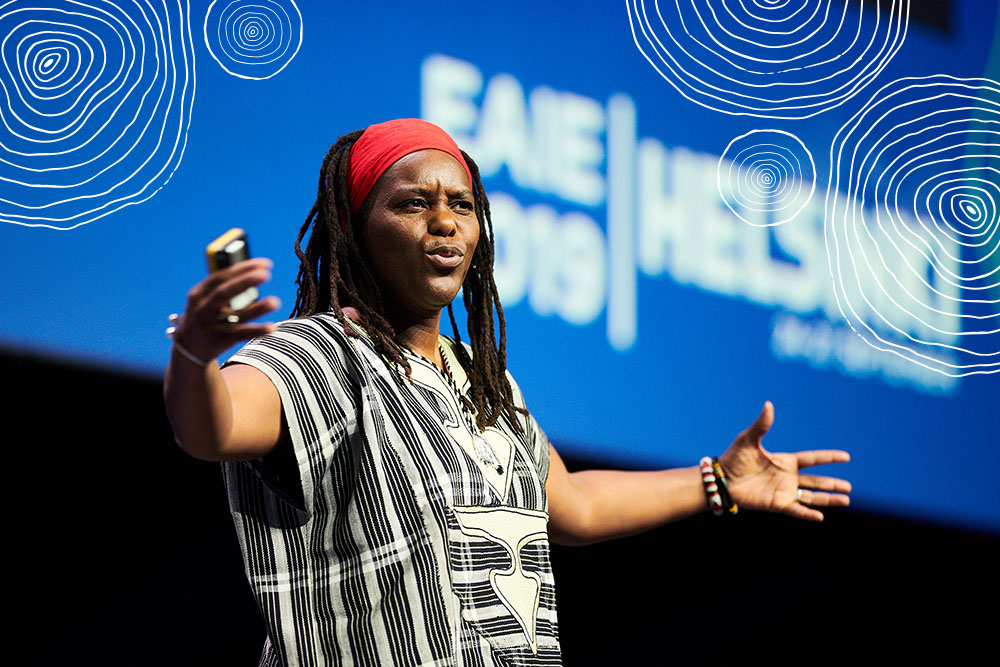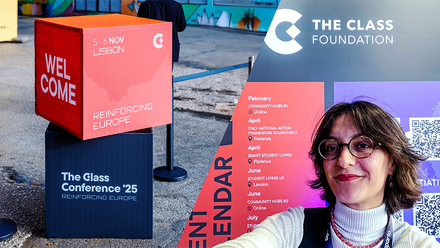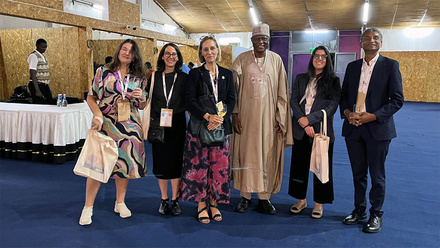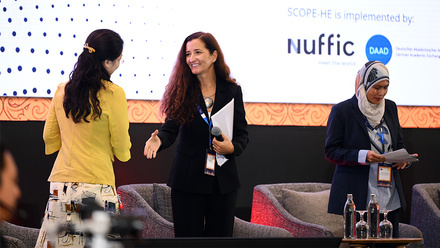Expanding the story to encompass all voices

The 31st Annual EAIE Conference and Exhibition came to a close with an illuminating speech from Prof Aminata Cairo, Keynote speaker at the EAIE 2019 Closing Plenary. Bringing us back home to the conference theme of ‘encompassing all voices’, Cairo spoke to how education systems – and indeed every other institution in society – tend to elevate certain groups’ narratives over others, inherently silencing the voices of those whose ‘story’ does not match the dominant one. Her speech was as practical as it was powerful, and made for the perfect punctuation to the end of a week spent discussing how international higher education can strive for inclusivity.
The Closing Plenary of the 2019 EAIE Conference brought the week full circle in its discussion of the conference theme of ‘encompassing all voices’. Aminata Cairo, Lector of Inclusive Education at The Hague University of Applied Science, shared with the audience the details of her multi-layered identity as a former Dutch citizen and current US citizen with roots in Suriname. In sharing some of her own experiences, she asked us to think critically about how we relate to issues of inclusion, and how we can ensure that we are not simply paying lip service to the idea of diversity but actually working to shift our cultural narratives for a more inclusive future.
Cairo’s keynote began by discussing some of the ways we talk about diversity, offering an anecdote about universities that enthusiastically proclaim their pride in having students from many different racial backgrounds and nationalities. But, as she pointed out, praising diversity among an institution’s student body isn’t enough. “It’s nice when we celebrate all the diversity that is present, but which stories are being told? Which story is told as the dominant story?”
As one story has become dominant, other stories have diminished in value
In passionate yet highly pragmatic terms, Cairo went on to explain how the dynamic of “the dominant” and “the other” – those with power and those without it – is rooted in the language we use. She explained how institutions and cultures typically elevate one narrative to a status of dominance, which is then used to silence those whose ‘stories’ are different. “As one story has become dominant, other stories have diminished in value. With stories, we mean the content of knowledge systems, but also how knowledge systems are produced, practiced and validated.”
“At the core of our educational institutions – and almost all other institutions – we have a system of inequality,” Cairo said. “This inequality was purposely designed hundreds of years ago and has been maintained by various mechanisms – social, political, cultural, economic and educational. Understanding how these mechanisms work to prevent true inclusion and the appreciation of the diversity of people’s stories is a crucial first step in moving toward a future in which everyone’s story is deemed valid.”
Cairo ended with a clear call to action – for us all to have the care, courage and humility that it takes to fight marginalisation and truly encompass all voices.
You can keep up to date on Aminata Cairo’s work through LinkedIn and Twitter.






